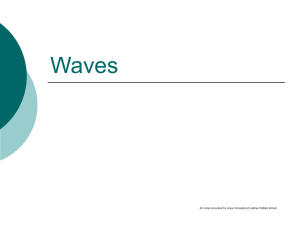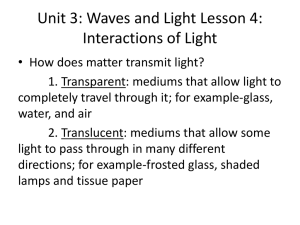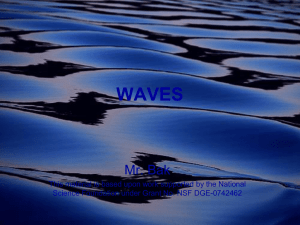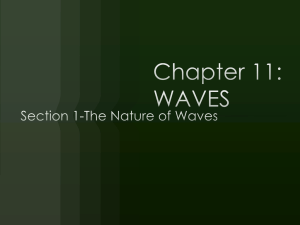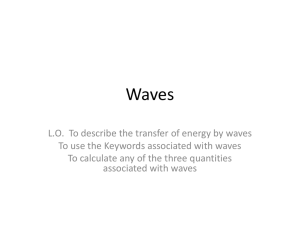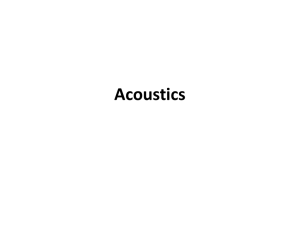Introduction to Waves Notes
advertisement
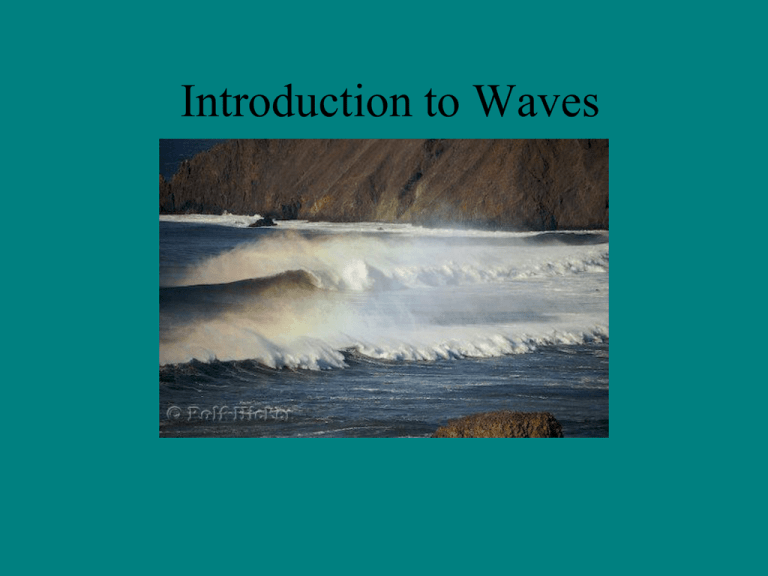
Introduction to Waves The location of energy sources may be different than where they are needed. • The energy must be transferred from one location to another by some means such as…… Movement of Material • Ie. Projectiles in flight, wind, etc. • When a ball hits a window, the glass is shattered by energy transferred from the ball during impact. Thermal Convection • Heat energy is transferred by thermal convection. This is the movement of quantities of heated gas or liquid between two locations. Waves • Ie. Sound waves, light waves, water waves, etc. The ideas and language used to describe waves are the same, regardless of the kinds of waves involved. What is a wave? • The basic concept in the use of the term wave is that the wave involves some quantity or disturbance that changes in magnitude with respect to time at a given location and changes in magnitude from place to place at a given time. • A wave is a disturbance that propagates through a medium or space (vacuum). Some waves are electromagnetic waves • Electromagnetic waves can travel through a material or through a vacuum. • Examples include visible light, microwaves, radio waves, x-rays, infrared rays and ultraviolet waves. • V = 3.00 x 108 m/s in air or a vacuum Some waves are mechanical waves • Mechanical waves require a material medium for their propagation (movement). • Sound waves, ocean waves, and earthquakes are mechanical waves. • Mechanical waves can be transverse, longitudinal, or surface waves. Transverse Waves • A transverse wave is a wave in which the vibrations are at right angles to the direction of propagation. • http://surendranath.trip od.com/Applets/Wave s/Twave01/Twave01A pplet.html Longitudinal Waves • A longitudinal wave is a wave in which the vibrations are parallel to the direction of propagation of the wave. • http://www.glenbrook. k12.il.us/GBSSCI/PH YS/mmedia/waves/lw. html Surface Waves • Surface waves such as water waves combine longitudinal and transverse wave movement. • http://www.classzone.com/books/earth_science/terc/ content/visualizations/es1604/es1604page01.cfm?cha pter_no=visualization Define the following wave terms • • • • • • • Elastic medium Disturbance Pulse Crest Trough Compression rarefaction • • • • • • Speed Frequency Period Wavelength Amplitude Phase
